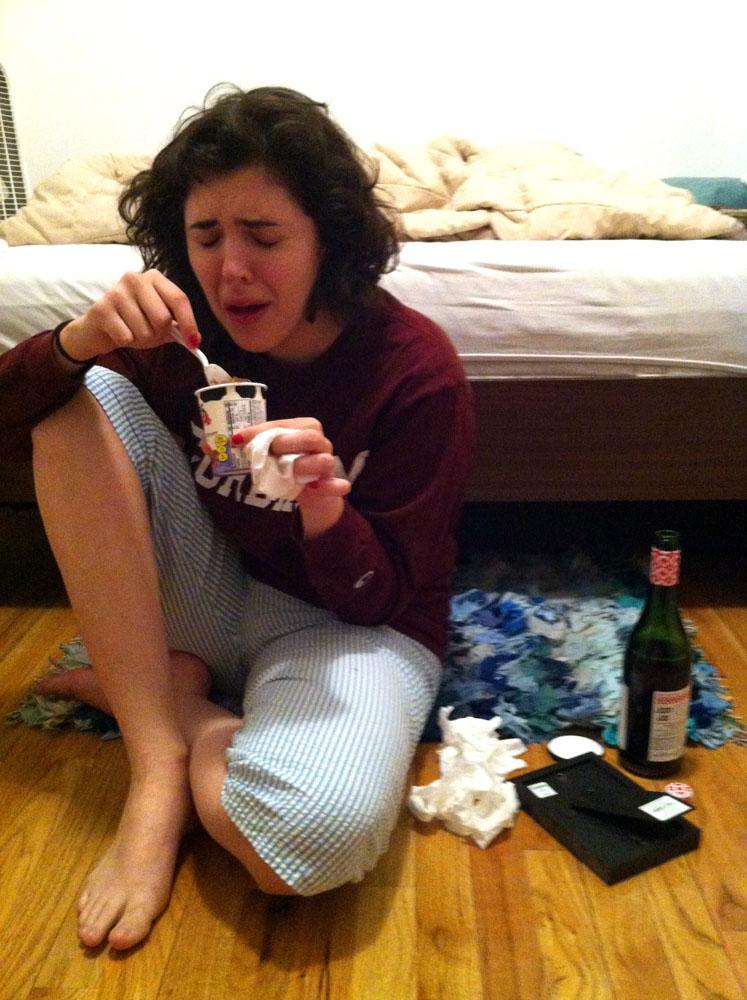Questioning TV’s Broken Woman Stereotype
May 2, 2012
When watching television or movies, we’ve all seen the woman that completely falls apart after a break up who needs a new man or a best friend to put her back together. And admittedly, you’ve probably laughed all the way through. It is an often-used formula for romantic comedies and sitcoms. But why can’t she just be normal? Act cool, calm, and collected? There was once something to be said about being poised, but this stereotype pours that all down the drain when a woman has lost her man.

NBC’s new hit comedy “Best Friends Forever,” created by and starring Bridesmaids’ Jessica St. Clair and Lennon Parham, portrays how this “broken woman stereotype” is explored in the media. The show’s synopsis is that Jessica (St. Clair) is served divorce papers via Fedex from her husband who is away on a trip. To cope, she flies across the country back to Brooklyn to move in with her best friend Lennon (Parham), who is now living with her current boyfriend, Joe (Luka Jones). In just the pilot, we see how Jessica needs taking care of because of her break up, and how that takes up all of Lennon’s energy, leaving her boyfriend at a loss.
We see how everyone tiptoes around Jessica, afraid to set off her because she is already in such a depressed state. In the second episode, “The Butt Dial,” Jessica accidentally butt dials her ex while complaining about the various things that have been wrong with her since the divorce, such as the “butt rash” she got from wearing nothing but yoga pants, being mistaken for a homeless woman at the grocery store while wrapped in a blanket, and of course, all the waterworks. With this bringing her even further below rock bottom, she decides to sulk in the tub for so many hours that her best friend needs to physically drag her out.
“Best Friends Forever” is not the first, and certainly not the last to bring this stereotype into its main storyline. Notoriously, classic “Sex and the City” is about the ups and downs of a group of female friends in Manhattan, which inevitably means lots of encounters with men—and the ends of these relationships. We’ve been there for them through the tears, the eating of entire tubs of ice cream, and the post-break up rituals, and of course Carrie’s advice in the end. “You’ll never get through it without your best friends,” Carrie once stated as the golden rule of break ups. But this may be taking it a little too far.
Former NBC show, “Friends,” also showed this storyline many times. My favorite has to be the Anti-Valentine’s Day ritual of burning their men’s things…and almost their entire apartment. In a different genre, teen thriller/drama “Pretty Little Liars” also shows the girls, more than once, being unable to leave their beds for weeks after a tough break up. Regardless of the genre, women of all ages are shown in break ups in one way: not accepting them.
All of us have experienced a rough break up. You might sulk for a day or two, but the reality is that life goes on. Why can’t it be the same for the women on the silver screen? As women, we have come so far to be strong, to be independent, to hold our own. Our lives revolve around far more important things than that one guy we couldn’t work things out with. The media needs to get out of the 1920s and realize that we’ve moved on, and they need to, too.









